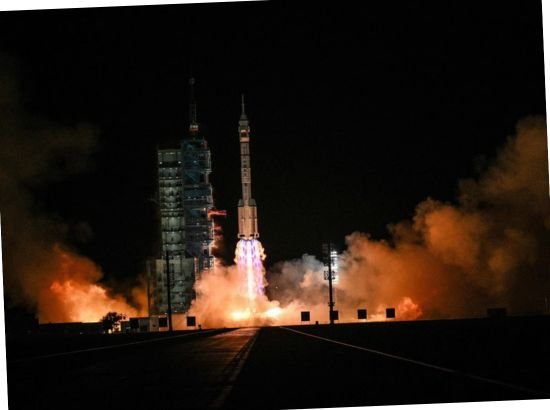
China Achieves New Space Milestone: Shenzhou-21 Docks with Tiangong Station in Record 3.5 Hours; Sends Four “Space Mice” for Experiments
China has achieved another remarkable milestone in its rapidly advancing space program. The Shenzhou-21 spacecraft, carrying a three-member astronaut crew, successfully docked with the Tiangong Space Station in a record 3.5 hours — nearly three hours faster than previous missions.
The Shenzhou-21 spacecraft lifted off late Friday night from the Jiuquan Satellite Launch Center in the Gobi Desert. Within just three and a half hours, it docked flawlessly with Tiangong, setting a new benchmark for China’s space operations.
The mission is commanded by veteran pilot Zhang Lu, accompanied by Wu Fei — a 32-year-old aerospace engineer and China’s youngest astronaut to date — and Zhang Hongzhang, serving as the payload specialist.
The crew will stay aboard Tiangong for approximately six months, conducting scientific research and maintenance operations.
For the first time in its space history, China has sent laboratory mice into orbit as part of a biological research mission.
The astronauts will conduct 27 scientific and applied experiments, covering biotechnology, aerospace medicine, and material sciences.
Four mice — two male and two female — were launched to study behavioral and physiological changes in zero-gravity environments.
These experiments aim to enhance understanding of mammalian reproduction in space, improve life-support monitoring systems, and develop techniques for biological adaptation to emergency space conditions.
The mice are expected to remain aboard the station for 5 to 7 days before being brought back to Earth aboard Shenzhou-20.
China continues to cement its position as a leading space power. Since launching its first manned mission in 2003, it has become the third nation, after the U.S. and Russia, to independently send humans into orbit.
The China Manned Space Agency (CMSA) confirmed that the country’s goal of landing astronauts on the Moon by 2030 remains on track. Spokesperson Zhang Jingbo described the lunar project as “firm and strategic.”
In a significant diplomatic move, China has also announced plans to train two Pakistani astronauts, with one expected to participate in a short-term mission to Tiangong — marking the first foreign astronaut’s visit to a Chinese space station.
The Tiangong Space Station, developed after China was excluded from the International Space Station (ISS) due to U.S. security restrictions, now stands as a symbol of China’s growing confidence and technological capability in space exploration.